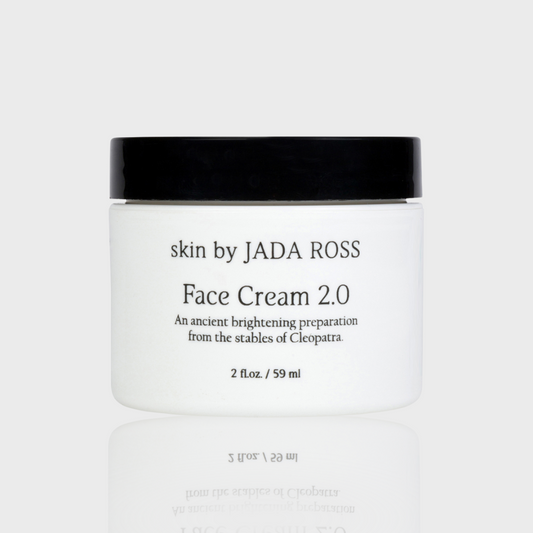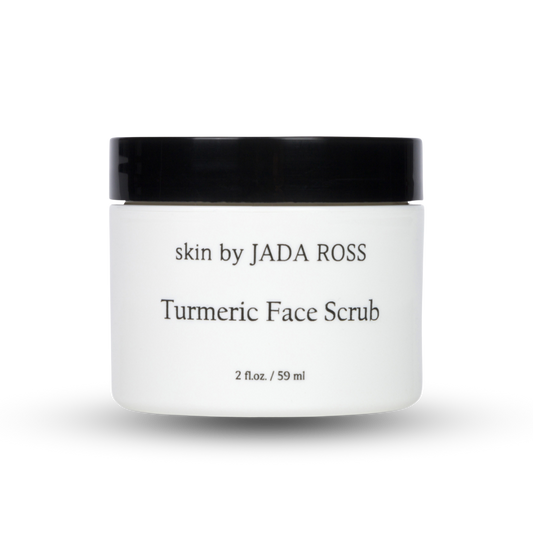The Importance of Moisturizing: Tips for Every Skin Type
Taking care of your skin is one of the most critical steps to maintaining health and appearance. Among the myriad skincare steps, moisturizing is one of the most essential practices. It is crucial not only for its immediate benefits but also for the skin's long-term health. While many people are familiar with the concept of moisturizing, they may not realize the full extent of its benefits or how it can be tailored to suit different skin types.
This blog article will guide you through the importance of moisturizing, how it benefits your skin, and provide actionable moisturizing tips that are ideal for various skin types, including dry, oily, combination, sensitive, and normal skin.
Why Moisturizing Matters
Moisturizing is far more than just a cosmetic step in a skincare routine. It is essential for maintaining healthy skin, preventing dryness, and protecting the skin's natural barrier. A well-moisturized face ensures the skin remains soft, supple, and resilient. Moisturizers work to replenish lost hydration, lock in moisture, and protect the skin from harmful environmental factors like pollutants and harsh weather. Furthermore, using a good moisturizer helps improve the skin's overall texture and can even slow down the appearance of aging signs, such as fine lines and wrinkles.
Understanding Skin Types
Definition of Skin Types: There is no one-size-fits-all regarding skincare, and understanding your skin type is the first step towards tailoring a moisturizing routine. The five primary skin types include:
- Oily Skin: This skin type is characterized by excess sebum production, leading to a shiny complexion, especially around the T-zone (forehead, nose, chin).
- Dry Skin: Dry skin often feels tight, rough, or flaky. It lacks sufficient natural oils and may appear dull or irritated.
- Combination Skin: As the name suggests, this type mixes dry and oily areas. Typically, the T-zone is oily, while the cheeks and the other regions may be dry.
- Sensitive Skin: This type is easily irritated and prone to redness, itching, or burning, often reacting negatively to certain skincare products or environmental factors.
- Normal Skin: Balanced skin that is neither too oily nor dry. It is typically smooth and hydrated with no significant issues.
How Skin Type Affects Moisturizing Needs: Each skin type has unique moisturizing requirements. For example, dry skin requires a richer, more hydrating moisturizer, while oily skin needs lightweight, non-greasy formulas. Understanding your skin type allows you to choose the best products and formulate a skincare routine that ensures your skin receives optimal hydration and care.

Benefits of Moisturizing for All Skin Types
Prevention of Dryness: Moisturizers' primary function is to replenish moisture and prevent dryness. When the skin is deprived of moisture, it can become flaky, tight, and dull. Moisturizing regularly keeps your skin hydrated and plump, ensuring a healthy, youthful appearance.
Protection from Environmental Damage: Moisturizers form a protective layer on the skin that helps defend against harmful environmental factors like pollution, UV rays, and harsh weather conditions. They keep the skin barrier intact, preventing external aggressors from causing damage and irritation.
Anti-Aging Benefits: Proper hydration helps maintain the skin's elasticity and firmness, thereby slowing the appearance of fine lines and wrinkles. The skin's ability to retain moisture decreases as we age, making it more prone to sagging and dryness. By incorporating a moisturizing routine with anti-aging ingredients like hyaluronic acid and peptides, you can reduce the visibility of wrinkles and maintain a youthful appearance.
Improves Skin Texture: One of the often-overlooked benefits of moisturizing is its ability to enhance the texture of your skin. Well-hydrated skin feels smoother and softer, reducing the appearance of rough patches, dry flakes, or redness. Regular moisturization encourages healthy skin cell turnover, leaving you with a clearer and more even complexion.
Moisturizing Tips for Every Skin Type
Not all skin is created equal, and neither are moisturizers. Identifying your skin type is the first step in building an effective skincare routine. Here are the primary skin types, each requiring a unique moisturizing approach:
Oily Skin: Oily skin produces excess sebum, resulting in a shiny complexion, particularly in the T-zone (forehead, nose, and chin). While many people with oily skin skip moisturizing, this is a mistake. Skipping moisturizer can cause the skin to overcompensate by producing even more oil. The key for oily skin is to use lightweight, oil-free moisturizers that hydrate the skin without adding extra shine or clogging pores.
Recommended Moisturizer: Gel-based moisturizers are excellent for oily skin as they are lightweight and non-comedogenic, ensuring hydration without a greasy finish.
Dry Skin: Dry skin lacks the natural oils required to keep it soft and moisturized. This can result in tightness, flakiness, and dullness. Dry skin needs rich, emollient moisturizers to lock in hydration and restore moisture balance. Look for thick creams and lotions containing humectants like glycerin and hyaluronic acid, which attract and retain moisture in the skin.
Recommended Moisturizer: Rich, creamy moisturizers that provide long-lasting hydration are ideal for dry skin. Opt for products that contain ingredients like ceramides, shea butter, and hyaluronic acid.
Combination Skin: Combination skin features both oily and dry zones, with the T-zone typically being oily and the cheeks and outer areas being dry. This skin type needs a balanced approach to moisturizing. Light moisturizers may be sufficient for oily areas, while richer products may be necessary for dry patches.
Recommended Moisturizer: A dual approach, using gel-based formulas for the T-zone and cream-based moisturizers for dry areas, will help maintain balance.
Sensitive Skin: Sensitive skin can easily become irritated, resulting in redness, itching, or inflammation. Therefore, it's essential to choose products free from fragrance, alcohol, or harsh chemicals. Look for soothing ingredients like aloe vera, chamomile, and green tea extract, which calm and protect sensitive skin.
Recommended Moisturizer: Choose fragrance-free, hypoallergenic moisturizers that contain calming ingredients to reduce irritation and redness.
Normal Skin: Normal skin is neither oily nor dry and tends to have a balanced texture with no significant issues. Regular moisturizing will help keep the skin hydrated, maintaining its youthful appearance without overloading it with excessive moisture.
Recommended Moisturizer: A lightweight, non-greasy moisturizer works best for normal skin, ensuring it stays hydrated without feeling heavy.

The Science Behind Moisturizers: Key Ingredients to Look For
Not all moisturizers are created equal. Understanding the key ingredients in your moisturizer can help you choose the right product for your skin type and needs:
Hyaluronic Acid: Hyaluronic acid is a powerful humectant, meaning it draws moisture from the environment and binds it to the skin. This ingredient is essential for hydrating the skin and keeping it plump, soft, and smooth. Hyaluronic acid works well for all skin types, including dehydration and aging.
Ceramides: Ceramides are lipids (fats) found in the skin's natural barrier. They help retain moisture and protect the skin from harmful environmental factors. Ceramides are particularly beneficial for dry and sensitive skin, as they prevent water loss and reinforce the skin's barrier.
Vitamin E: Vitamin E is a potent antioxidant that protects the skin from oxidative stress caused by free radicals. It also has anti-inflammatory properties and helps to smooth rough skin, making it an excellent choice for people with sensitive or aging skin.
Glycerin: Glycerin is another humectant that attracts moisture from the atmosphere and helps keep the skin hydrated. It is particularly effective for dry and rough skin types, providing a quick moisture boost that lasts for hours.
Squalane: Squalane is a lightweight, non-comedogenic oil that hydrates the skin without clogging pores. It's ideal for oily or acne-prone skin because it hydrates without causing breakouts or excess shine.
Product Recommendations for Every Skin Type
Maxi Hyaluronic Moisture Cream (Anti-Aging): Maxi Hyaluronic Moisture Cream is a luxurious, deeply hydrating cream that delivers instant hydration to dry and mature skin. The formula includes a powerful blend of Hyaluronic Acid, Squalane, and Polyisobutene, which work together to hydrate the skin, reduce fine lines, and restore skin's elasticity.
Key Ingredients:
- Hyaluronic Acid: Attracts moisture from the dermis and locks it into the skin's surface.
- Squalane: A lightweight hydrator that replenishes the skin without clogging pores.
- Peptides and Antioxidants: Combat signs of aging by encouraging cell renewal and providing free-radical protection.
Benefits for Dry & Mature Skin:
- Deeply hydrates and revitalizes dry skin.
- It helps reduce the appearance of fine lines and wrinkles.
- Creates soft, supple, and plump skin.
How to Use: Apply generously after cleansing and toning, especially in the evening, for overnight hydration. The rich formula will nourish your skin while you sleep, leaving it feeling revitalized by morning.
Hyaluronic Moisture Serum (Anti-Aging): This lightweight, water-based formula delivers instant hydration and boosts skin elasticity. The combination of Sodium Hyaluronate, Vitamin C, and aloe vera helps smooth the skin, reduce fine lines, and promote a youthful glow.
Key Ingredients:
- Hyaluronic Acid: A humectant that attracts water to the skin, keeping it hydrated.
- Vitamin C: Brightens the skin and helps to repair damage caused by free radicals.
- Aloe Vera: Calms and soothes the skin, reducing redness and inflammation.
Benefits for Every Skin Type:
- Hydrates and smoothes the skin.
- Increases skin elasticity and firmness.
- It helps reduce signs of aging by promoting collagen growth.
How to Use: Apply a few drops to clean skin, both morning and evening, before moisturizing. Follow with the Maxi Hyaluronic Moisture Cream for additional hydration and anti-aging benefits.

How to Incorporate Moisturizing Into Your Skincare Routine
Morning Skincare Routine:
- Cleanser: Use a gentle, non-stripping cleanser.
- Toner: Apply a toner to balance skin pH and prepare for moisturizing.
- Serum: Add an anti-aging serum for an extra boost of hydration and treatment.
- Moisturizer: Use a lightweight moisturizer suited to your skin type.
- Sunscreen: Protect your skin from harmful UV rays.
Evening Skincare Routine:
- Cleanser: Remove makeup and impurities.
- Toner: Hydrate and balance your skin.
- Serum: Apply a nourishing serum for overnight skin repair.
- Moisturizer: Use a richer, more hydrating cream for overnight hydration.
Seasonal Changes: Adjust your skincare routine according to the weather. Opt for thicker, cream-based moisturizers during the cold, dry winter months. In the summer, you may prefer lighter, gel-based formulas that hydrate without the heaviness.

Common Moisturizing Mistakes and How to Avoid Them
Avoid common pitfalls to optimize your skincare routine:
- Over-moisturizing: Too much moisturizer can lead to clogged pores. Stick to a reasonable amount based on your skin's needs.
- Wrong Product for Your Skin Type: Always choose a moisturizer that suits your skin type to avoid irritation or ineffective hydration.
- Skipping SPF: Sun protection is crucial, even on cloudy days. Make sure to wear sunscreen every morning.
- Neglecting Night Moisturizing: Nighttime is when the skin repairs itself, so using a good moisturizer at night ensures your skin regenerates effectively.
Moisturizing is the cornerstone of a healthy skincare routine. It helps prevent dryness, protects the skin from environmental stressors, and slows down the visible signs of aging. Understanding your skin type and choosing the right products ensures that your skin stays hydrated, balanced, and youthful.
Whether you have dry, oily, or sensitive skin, the Maxi Hyaluronic Moisture Cream and Hyaluronic Moisture Serum from skin by Jada Ross are excellent skin care.
Visit the skin by Jada Ross website today to explore these products and give your skin the hydration and care it deserves.
FAQs (Optional):
Q1: Can I use both the Maxi Hyaluronic Moisture Cream and Hyaluronic Moisture Serum together?
Ans: Yes! Using the serum followed by the cream can enhance hydration and anti-aging benefits.
Q2: How often should I moisturize?
Ans: Moisturizing twice daily — morning and night — is recommended for optimal skin hydration.







Leave a comment
Please note, comments need to be approved before they are published.